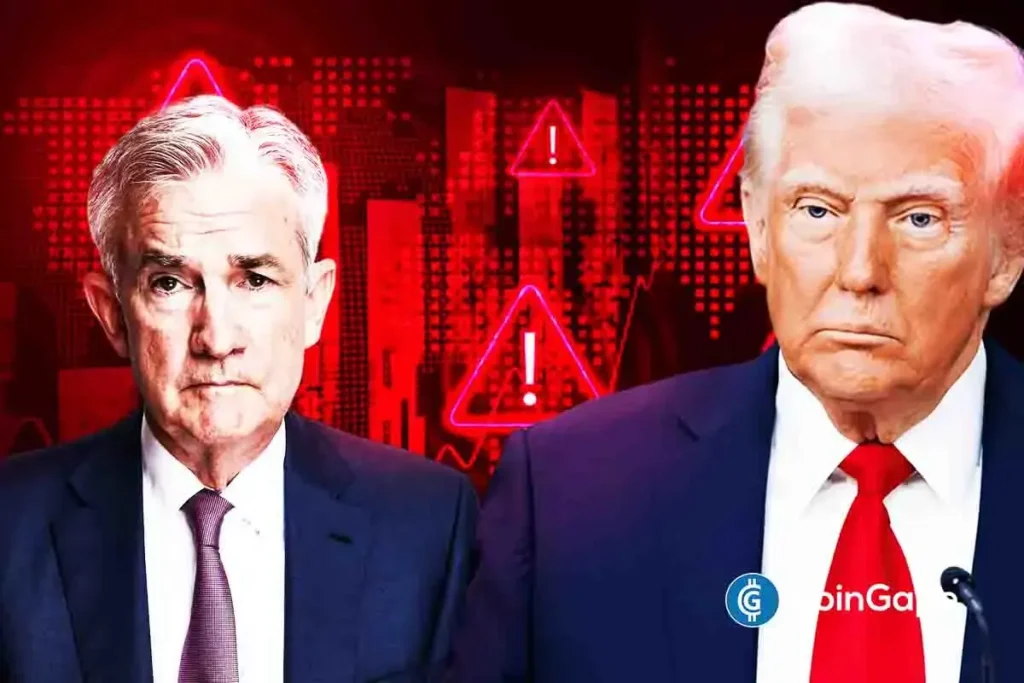Trump’s Shift on Jerome Powell: A New Era for the Federal Reserve and Interest Rates
In a notable pivot, U.S. President Donald Trump has abandoned his earlier intentions to dismiss Federal Reserve Chair Jerome Powell. Recent statements from Trump signal a willingness to let Powell see out his term, despite a backdrop of pressure to lower interest rates. This newfound stability in leadership at the Fed comes after Trump previously captured attention with harsh critiques, calling Powell a "loser" and expressing a desire for his swift removal. The shift in tone not only affects Powell’s position but has broader implications for U.S. monetary policy, particularly as Trump amplifies his calls for interest rate cuts.
Trump’s reconciliation with Powell occurred against the backdrop of a global economic landscape that has shifted considerably. In a recent address, the President publicly stated that he has “no intention of firing” the Fed Chair, despite Powell’s hesitance to reduce interest rates. This represents a delicate balancing act; while Trump may have set aside threats of termination, he continues to exert pressure on Powell to adopt a more aggressive monetary policy. Financial markets appear to reflect a cautious optimism, with traders betting against Powell’s dismissal on platforms like Polymarket. As Powell maintains his composure, he stands firm in his interpretation of the legal constraints surrounding his role as Fed Chair.
As discussions about Powell’s stability simmer, Trump’s focus has turned to his desire for favorable monetary conditions. Recently, during the swearing-in ceremony for new SEC Chair Paul Atkins, Trump demanded more flexibility from Powell regarding interest rates. "It is a perfect time to lower interest rates," Trump asserted, advocating for economic measures that would stimulate growth. The President has also voiced concerns about a potentially slowing economy, suggesting that failure to lower rates could hinder U.S. economic performance, particularly amidst ongoing global trade disputes.
While the Federal Reserve cut interest rates three times in 2024, Trump argues that more action is warranted. He points to the European Union’s aggressive monetary policy as a benchmark, noting that Europe had cut rates seven times without similar measures being adopted by the Fed. Powell, however, has defended his cautious outlook, emphasizing the necessity to tread lightly given the unpredictable nature of trade policies under the Trump administration. This tension between the Presidency and the Fed underscores an ongoing dialogue about the intersection of fiscal policy and economic reality.
Should the Federal Reserve heed Trump’s calls and lower interest rates further, analysts anticipate significant repercussions for the cryptocurrency market. A reduction in interest rates would likely drive capital toward riskier assets, including Bitcoin and other cryptocurrencies, as a depreciating U.S. dollar makes such investments more attractive. The cryptocurrency market has historically responded positively to Trump’s critiques of Powell; post-announcement, Bitcoin prices surged, reaching highs of $93,000. This correlation suggests a vibrant market reaction, capable of swaying investor sentiment and decision-making.
In summary, Trump’s evolving relationship with Jerome Powell reflects broader themes in U.S. economic policy. With the abandonment of firing talks, the Fed Chair is in a position to influence monetary policy without the specter of dismissal hanging over him. Nevertheless, with pressure mounting for lower interest rates, both Trump and Powell are engaged in a complicated dance of economic leadership. As stakeholders eagerly await the Fed’s next moves, the potential impact on financial markets, including cryptocurrencies, remains a focal point of interest in this dynamic landscape. The interplay between government, market reactions, and the regulatory environment will continue to evolve, promising an intriguing year ahead for both traditional and digital assets.


